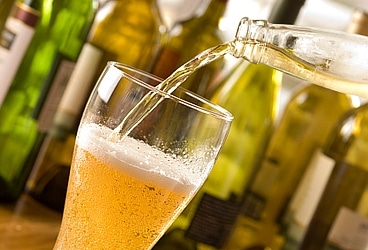Taste: Who Has The Best Tropical Brew?
The frosted bottle of Piton beer served at the open-air bar of St. Lucia's Ladera resort is so cold that the bartender, Ewan, cautions me to let its icy neck warm, for just a moment, before I put it to my lips. That's hard to do on an afternoon when both the temperature and humidity hover in the mid-80s and my baked lips crackle from too much beach time. While I wait for the beer to bead with sweat, I ask what other Caribbean beers Ewan likes.
He snorts. "Only this one. The others all taste like water — salt water." From that, I learn this: Never ask an islander which island has the best beer because, of course, it will always be his own.
Especially in the Caribbean. The people here are fiercely loyal to their indigenous brews, but that's also because, I think, few have ever sampled anything else. (Ewan admitted to only having tried Jamaica's Red Stripe and a Carib from Trinidad and Tobago.) Yet that may be changing. St. Lucia, for example, hosted its first Oktoberfest this past fall, with Piton served alongside Europe's Edelweiss and Pelforth Brune. Still, for many locals island pride shines for the beers brewed throughout the Caribbean. When you island hop, you'll find that while Red Stripe is certainly the best known of the bunch, it's not necessarily the best tasting — unless, of course, you're Jamaican.
Actually, if there is a suds mecca in the Caribbean, I'd argue that it's Trinidad. The island brews about seven beers including Carib, which — like most Caribbean brews — is best when imbibed right where it's made. I was lunching on some creole-spiced fish at a little hole-in-the-wall joint across from Queen's Park Savannah in Port-of-Spain when I ordered the house specialty, a cocktail made with white rum, lime juice and Angostura aromatic bitters. But I quickly changed my mind before the waitress had left the table.
"You know what? Give me a Carib," I told her. And while this light beer, the color of straw, isn't something I'd normally order at home, the fiery Creole spices and the steel drum music coming from a band in the park compelled me to drink it here.
Another afternoon I took advantage of an aimless rainy day at quiet Blanchisseuse Beach on Trinidad's northern shore to sample one of the island's more substantial brews, an ebony-colored Royal Extra Stout. Although it was certainly more robust than the Carib I'd been drinking, its malty taste was perfect for hanging out and comparing notes with the bartender about different Caribbean beers on an inclement day.
Aruba's Balashi came up. It was an old college buddy who turned me on to it while on a sailing trip around Aruba, Bonaire and Curaçao. It's a true tropical lager: I find it very dry, very light and slightly fizzy. We'd snorkel or dive all morning, and when we came back to the boat for lunch, a Balashi Light, with less than 5 percent alcohol, seemed like the perfect beverage to accompany a martini glass of ceviche.
Another tropical lager I've gotten familiar with while sailing in the Caribbean is Kalik. Though brewed in Nassau on the island of New Providence, it's available throughout the Bahamas. Kalik Gold, which is a bit more potent version of the original Kalik, has a slightly citrus smell and taste, as if a lime had already been added. It's also less fizzy than most other tropical lagers. I call it a "sundowner brew" because it just seems the perfect beer to have on a boat while watching the sun dip into the ocean. There's one Caribbean beer that took me by surprise. Here on St. Lucia, I've been amazed by the number of Guinness ads painted on the exterior walls of just about every bar I passed. Sitting at the bar with Ewan, I mention that. He laughs.
"Guinness is a Caribbean beer," he says. Not the same legendary Irish beer, he explains, but a version called Foreign Extra Stout. It's actually brewed in the Caribbean (and Africa and Asia) with extra hops to create a beer that goes better on a hot beach day, when it's been pulled from what may be a not-so-cold cooler.
But what about his notion that other Caribbean beers taste like salt water? Turns out Ewan's opinion is based on more than just geography. Many tropical lagers use desalinated ocean water, just as so many people and businesses in the Caribbean get water that way. The distillation process, which removes not only the salt but also other impurities, produces a clean water. So psychologically, it may still be considered "salt water," but realistically, it's great for brewing.
So what's the best Caribbean beer? That depends on what island you're on. And what's on the grill for lunch.
